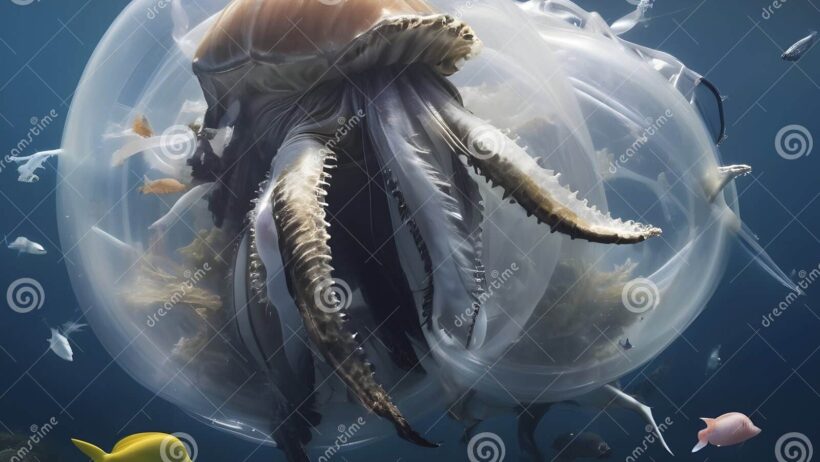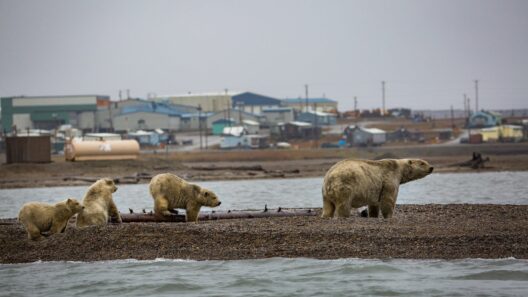In the murky depths of our collective consciousness lies an undeniable truth: the oceans, covering more than 70% of the Earth’s surface, are intricately entwined with the viability of life on our planet. As we journey beyond the tangible allure of azure waters, we must confront an increasingly harsh reality—global warming is not just an abstract concern for the future; it is an immediate crisis that is unraveling the delicate tapestry of oceanic resources.
To fully comprehend the ramifications of global warming on these vital ecosystems, it is imperative to explore several key dimensions: the chemistry of the ocean, the biodiversity it harbors, the implications for human economies, and the cultural significance of marine environments.
The Oceanic Chemistry: A Shifting Paradigm
The chemistry of ocean waters is undergoing an alarming transformation due to elevated atmospheric temperatures and resultant carbon dioxide absorption. As the oceans absorb this excess carbon dioxide, a phenomenon known as ocean acidification ensues. This process reduces the availability of carbonate ions, which are essential for calcifying organisms such as corals and shellfish. The implications are far-reaching: coral reefs, often referred to as the “rainforests of the sea,” are succumbing to bleaching events and mass die-offs that devastate biodiversity. Indeed, the very fabric of marine ecosystems is being woven into a fragile state, straining the resilience of species that have thrived for millennia.
Furthermore, warmer ocean temperatures disrupt thermohaline circulation, the process responsible for regulating climate and distributing nutrients across marine environments. When these currents are altered, nutrient-rich waters may no longer reach surface layers, leading to diminished phytoplankton blooms—the foundational element of the marine food web. In turn, this diminishes the food supply for fish and other fauna, thereby exacerbating the global issue of overfishing and threatening food security.
Biodiversity: A Tenuous Balance
The rich biodiversity found within oceanic realms is facing obliteration as the impacts of climate change intensify. Marine species, highly adapted to specific temperature ranges and environmental conditions, are now being forced to migrate towards cooler waters. This pattern is evident in numerous fish populations, which are seeking refuge in temperate zones that are often ill-equipped to handle their influx.
The disruption of established ecosystems manifests in altered predator-prey relationships and an increase in invasive species that thrive in warmer, more acidic conditions. For example, the lionfish, an invasive predator in the Caribbean, has contributed to the decline of native reef fish populations. Such instances exemplify the intricate connections within marine ecosystems and how each species plays a crucial role in maintaining ecological balance.
Moreover, ocean warming does not merely threaten individual species; entire habitats face decimation. Mangroves, seagrasses, and salt marshes, essential for coastal protection and biodiversity, are increasingly vulnerable to rising sea levels and increased storm intensity. The loss of these habitats signifies a decline in the ecosystem services they provide, such as carbon sequestration and shoreline stabilization.
Economic Ramifications: The Cost of Inaction
The economic repercussions of global warming’s impact on oceanic resources are profound. The fishing industry, a lifeline for millions of communities worldwide, is on shaky ground. With fish populations declining and shifting, livelihoods dependent on stable fish stocks are threatened. It is estimated that global fish catches have already declined by about 30% over the last few decades. Consequently, food prices are projected to rise, constituting a dire challenge for those in developing countries heavily reliant on fish as a primary protein source.
Moreover, tourism, particularly in coastal areas where coral reefs attract millions of visitors annually, is adversely affected. The degradation of these natural wonders due to coral bleaching and ocean acidification results in diminished tourist appeal, leading to economic downturns in regions that have invested heavily in marine tourism. The ripple effects are extensive, impacting employment rates, local economies, and overall community well-being.
Cultural Significance: A Lost Heritage
The oceans are not merely economic engines; they hold immense cultural significance for many communities worldwide. Indigenous populations, who have coexisted with marine environments for generations, view the ocean as sacred. This integral connection fosters a profound sense of responsibility towards stewardship and sustainability. As oceanic resources dwindle and ecosystems collapse, these communities face existential crises; knowledge passed down through generations is at risk of vanishing along with the traditional practices tied to marine life.
As the world continues to grapple with climate change, there is an urgent need to foster a renewed relationship with the ocean—a one that is rooted in respect and understanding. Education and advocacy play critical roles in cultivating a broader awareness of the interconnectedness of human health, marine biodiversity, and climate stability. Only through collaborative action can society hope to mitigate the destructive trajectory we are currently following.
A Call to Action
Addressing the challenges posed by global warming’s impact on oceanic resources necessitates immediate and sustained action. Transitioning to renewable energy sources, reducing plastic pollution, implementing sustainable fishing practices, and establishing marine protected areas are crucial steps toward conserving our oceans.
The ocean’s plight mirrors our own, entwined in a complex web of interdependence. The time to act is not in the hazy future but in the present. By understanding and acknowledging the profound consequences of global warming on oceanic resources, humanity can inspire a collective shift towards stewardship, ensuring that the blues of our oceans endure for future generations to explore and cherish.






